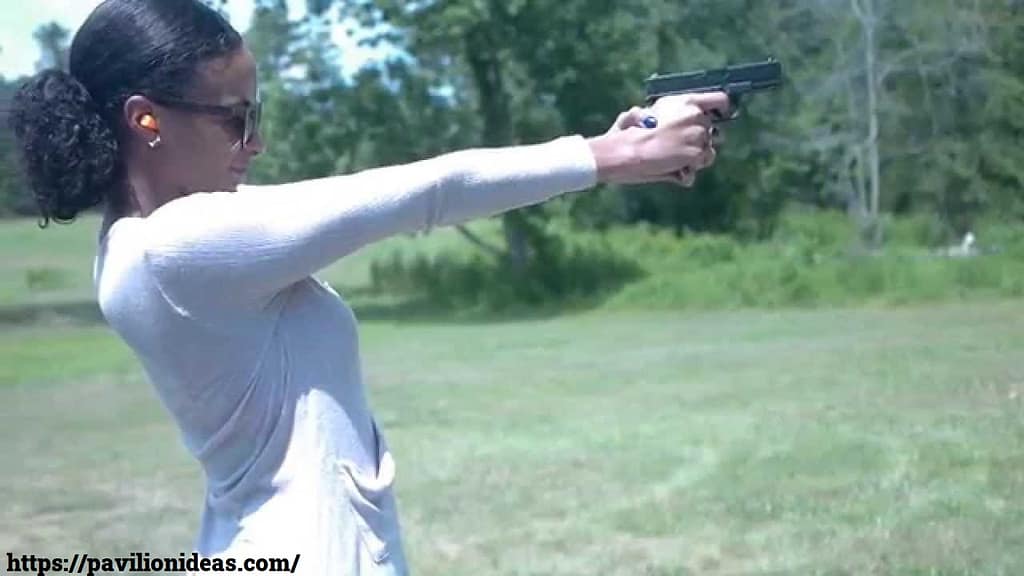Have you ever wondered if you could hunt in your own backyard? As hunting enthusiasts, many of us crave the thrill of the chase right in our own backyard. However, before grabbing your gear and heading out, it’s crucial to understand the rules and regulations surrounding backyard hunting. In this comprehensive guide, we’ll delve into the intricacies of backyard hunting, answering common questions and shedding light on local laws and regulations.
Before embarking on a backyard hunting adventure, it’s essential to familiarize yourself with local regulations. Different regions have varying laws regarding hunting on private property, and it’s vital to adhere to these guidelines to avoid any legal repercussions. Many states have specific distance requirements dictating how close to your house you can hunt. Additionally, zoning laws may restrict hunting in residential areas to ensure the safety of residents.
Can You Hunt on Your Own Land?
Many landowners wonder whether they have the right to hunt on their own property. The answer varies depending on factors such as local regulations, property size, and zoning laws. In rural areas, hunting on private land is often allowed, provided hunters possess the requisite licenses and adhere to seasonal restrictions and bag limits.
However, in suburban or densely populated areas, hunting on one’s property may be prohibited due to safety concerns or municipal ordinances. Before embarking on any hunting expedition, it’s crucial for property owners to familiarize themselves with relevant laws and regulations to ensure compliance and avoid potential legal issues.
Before embarking on any hunting expedition, it’s crucial to grasp the importance of obtaining the necessary licenses and permits. Hunting regulations vary from state to state, and failure to comply with licensing requirements can result in legal consequences. Most states mandate hunters to acquire a hunting license, which demonstrates their understanding of hunting laws and safety protocols.
Additionally, specific permits may be needed for hunting certain game species or using particular hunting methods. By ensuring they have the proper documentation, hunters can demonstrate their commitment to legal and ethical hunting practices while contributing to wildlife conservation efforts. Understanding licensing requirements is essential for a responsible and law-abiding hunting experience.
Legal Hunting without a Perm
The notion of hunting without a permit raises questions about legality and ethical considerations. While hunting regulations typically require permits, there are instances where hunting may be legally permissible without one. For example, in some regions, landowners may have the right to hunt on their property without a permit, provided they comply with local laws and regulations.
Additionally, certain game species may be exempt from permit requirements, such as nuisance animals or invasive species. However, it’s crucial to thoroughly research and understands the specific laws governing hunting in your area to ensure compliance and avoid legal repercussions.
Navigating the legality of hunting without a permit requires a nuanced understanding of local regulations and exemptions. While some scenarios may allow for legal hunting without a permit, it’s essential to proceed with caution and prioritize ethical hunting practices.
Consulting with local wildlife agencies or legal experts can provide valuable insights into the intricacies of hunting laws and regulations in your area. Ultimately, hunters should strive to uphold ethical standards and respect wildlife conservation efforts, regardless of permit requirements.
By staying informed and adhering to legal guidelines, hunters can enjoy the thrill of the chase while promoting responsible stewardship of natural resources.
Stay clear of these errors!
- Assuming hunting on private property exempts from permit requirements.
- Disregarding species-specific permit requirements
- Failure to thoroughly research and understand local hunting laws
- Not seeking guidance from local wildlife agencies or legal experts.
- Risks legal trouble and unintentional violations
- By avoiding these mistakes, hunters can ensure a legally sound and ethical hunting experience while protecting wildlife and natural resources.
Safety Considerations
Ensuring safety is paramount when engaging in backyard hunting. Before heading out, it’s crucial to conduct a comprehensive assessment of the area to identify potential hazards and safety concerns. This includes understanding property boundaries, establishing safe shooting zones, and considering alternative hunting methods, such as bow hunting, in densely populated areas. Additionally, hunters must adhere to proper firearm safety protocols and exercise caution when handling firearms. By prioritizing safety, hunters can minimize the risk of accidents and ensure a secure hunting environment for themselves and others.
Understanding and implementing safety considerations are essential steps in promoting responsible and enjoyable backyard hunting experiences while fostering a culture of safety within the hunting community.
Respecting Wildlife and Property
Respecting wildlife and property boundaries is fundamental to ethical hunting. Hunters must prioritize the preservation of natural ecosystems and wildlife habitats by avoiding hunting in protected or endangered areas. Additionally, adhering to hunting seasons and bag limits ensures the sustainability of wildlife populations and conservation efforts.
Moreover, hunters should obtain permission from landowners before hunting on private property to demonstrate respect for property rights and foster positive relationships with the community. By practicing ethical hunting, hunters can contribute to the preservation of wildlife and habitats while promoting responsible stewardship of the land.
Respecting wildlife and property is not only a legal obligation but also a moral imperative for conscientious hunters committed to conservation and environmental sustainability.
Conclusion
In wrapping up our exploration of backyard hunting, it’s clear that respect is paramount. From understanding regulations to prioritizing safety and respecting wildlife and property, responsible hunting hinges on ethical conduct. By adhering to legal requirements and fostering positive relationships within our communities, hunters can enjoy the thrill of the chase while contributing to conservation efforts.
As we venture into the woods or our backyard, let’s remember to tread lightly, hunt ethically, and leave only footprints behind. Through our actions, we can promote a future where humans and wildlife thrive harmoniously. So, as you gear up for your next adventure, carry with you the values of respect and responsibility. Happy hunting, and may each outing be filled with both excitement and reverence for the natural world.

